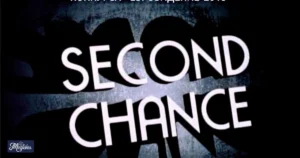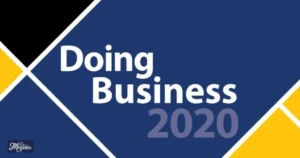“Sometimes, the words we choose can uplift or diminish the conversation.”
In our daily conversations, we often find ourselves in situations where we feel the need to remind others that we had foreseen a particular outcome. Whether it’s in personal relationships, professional settings, or casual encounters, saying “I told you so” can sometimes come across as smug or condescending.
It’s essential to communicate our insights without alienating others or appearing arrogant. This article explores alternative phrases and approaches to express similar sentiments with grace and tact.
We invite you to reflect on how you communicate with those around you. Are there times when your words might be perceived differently than intended? If you’ve ever found yourself in a situation where you felt justified in your foresight, but didn’t want to rub it in someone’s face, you’re not alone. Understanding how to express yourself can lead to more productive conversations and stronger relationships.
This article will delve into 35 alternative phrases and scenarios to convey the message behind “I told you so” without the potential for hurt feelings or misunderstandings. Each point will provide context and insights to help you choose your words wisely, turning what could be a moment of triumph into an opportunity for connection and understanding. Let’s discover how to communicate effectively while maintaining respect and kindness.
35 Alternative Phrases
1. “I saw this coming.”
Scenario: During a team meeting, Sarah had predicted that a project would face delays due to unrealistic timelines. When the delays occurred, she said, “I saw this coming.”
Subject Explanation: By using this phrase, Sarah acknowledges her foresight without sounding accusatory. It conveys her awareness and encourages the team to reflect on the planning process.
Additional Tip: Approach the situation with empathy. Instead of highlighting the error, suggest constructive changes for future projects.
2. “I had a feeling this would happen.”

Scenario: When Tom’s friend failed to follow a workout plan, he remarked, “I had a feeling this would happen.”
Subject Explanation: This phrase expresses understanding while gently reminding his friend of their earlier discussion about the importance of commitment.
Additional Tip: Offer support instead of criticism. Encourage your friend to stay motivated rather than dwell on the setback.
3. “It seems we underestimated that.”
Scenario: In a project review, Lisa pointed out that the team underestimated the time needed for a specific task, stating, “It seems we underestimated that.”
Subject Explanation: This phrase shifts the focus from blame to a collective learning experience. It encourages the team to assess their planning methods without personalizing the mistake.
Additional Tip: Follow up with suggestions on improving future estimations to promote a growth mindset.
4. “I think we might have missed something.”
Scenario: After a colleague’s presentation went awry, James gently said, “I think we might have missed something.”
Subject Explanation: This approach fosters collaboration and invites others to share their thoughts on what went wrong without assigning blame.
Additional Tip: Encourage open dialogue about mistakes, creating a safe space for learning.
5. “Remember when we discussed this?”
Scenario: After Mary’s project hit a snag, Peter said, “Remember when we discussed this?”
Subject Explanation: This phrase serves as a reminder of prior conversations, helping to reconnect with previous insights without being confrontational.
Additional Tip: Use this as an opportunity to revisit and clarify previous discussions for better future outcomes.
6. “I warned you this might happen.”
Scenario: After a friend ignored her advice about investing, she said, “I warned you this might happen.”
Subject Explanation: While this phrase is slightly more direct, it’s still effective when framed positively, emphasizing her concern rather than boasting.
Additional Tip: Frame it as concern for their well-being to soften the message and foster understanding.
7. “We could have prepared better.”
Scenario: In a performance review, the manager noted, “We could have prepared better” after a project fell short.
Subject Explanation: This phrasing shifts the conversation from individual blame to team responsibility, encouraging growth and accountability.
Additional Tip: Discuss specific strategies for improvement, reinforcing teamwork.
8. “I think we could learn from this.”
Scenario: After a marketing campaign underperformed, the team lead remarked, “I think we could learn from this.”
Subject Explanation: This constructive approach fosters a positive environment where everyone feels safe to explore mistakes and learn from them.
Additional Tip: Create actionable steps for future campaigns to turn setbacks into opportunities.
9. “I had a suspicion this would occur.”
Scenario: When a friend’s new business venture struggled, she said, “I had a suspicion this would occur.”
Subject Explanation: This phrase conveys her insight while maintaining a level of empathy. It opens the door for a discussion about what went wrong.
Additional Tip: Offer to help brainstorm solutions to turn the situation around.
10. “Let’s look at what went wrong.”
Scenario: After a failed group project, Alex suggested, “Let’s look at what went wrong.”
Subject Explanation: This phrase invites a constructive review and emphasizes teamwork over individual mistakes.
Additional Tip: Focus on constructive feedback that encourages future success.
11. “I wish we had considered that.”

Scenario: In a brainstorming session, Jamie reflected, “I wish we had considered that.”
Subject Explanation: This statement acknowledges a missed opportunity without assigning blame, creating an atmosphere of collaboration.
Additional Tip: Encourage team members to share their ideas freely in future discussions.
12. “We could have anticipated this outcome.”
Scenario: Following a project delay, Michael said, “We could have anticipated this outcome.”
Subject Explanation: This approach focuses on collective responsibility and promotes a proactive mindset for future projects.
Additional Tip: Discuss how to develop better forecasting techniques together.
13. “That didn’t go as planned.”
Scenario: After a failed presentation, Rachel stated, “That didn’t go as planned.”
Subject Explanation: This neutral observation opens up a conversation about what went wrong while avoiding finger-pointing.
Additional Tip: Encourage brainstorming for improvements rather than dwelling on past mistakes.
14. “It seems like we hit a bump in the road.”
Scenario: During a team meeting, Brian said, “It seems like we hit a bump in the road.”
Subject Explanation: This phrase softens the blow of failure and invites discussion about overcoming obstacles together.
Additional Tip: Focus on finding solutions and strengthening the team’s resolve.
15. “I guess we should have listened to the signs.”
Scenario: After a project that didn’t meet expectations, Ellen remarked, “I guess we should have listened to the signs.”
Subject Explanation: This phrase reflects on missed warnings without being confrontational, allowing for constructive discussion.
Additional Tip: Encourage awareness of red flags in future projects to foster better decision-making.
16. “This might be a learning moment.”
Scenario: Following a miscommunication, Mark said, “This might be a learning moment.”
Subject Explanation: By framing it as a learning opportunity, Mark encourages his team to reflect positively on the situation.
Additional Tip: Facilitate discussions about what can be learned from the experience to enhance growth.
17. “Next time, let’s be more cautious.”
Scenario: After a friend faced issues due to a hasty decision, Julia suggested, “Next time, let’s be more cautious.”
Subject Explanation: This phrase suggests future improvements while acknowledging the current situation without blame.
Additional Tip: Emphasize the importance of careful consideration in future decisions.
18. “I think we should have factored that in.”
Scenario: During a review, Danny pointed out, “I think we should have factored that in.”
Subject Explanation: This phrase encourages reflection on the planning process, promoting a constructive environment.
Additional Tip: Suggest specific elements to include in future planning sessions to enhance outcomes.
19. “This could have been avoided with better planning.”
Scenario: After a missed deadline, Lisa noted, “This could have been avoided with better planning.”
Subject Explanation: This highlights the importance of planning without pointing fingers, fostering a solution-oriented mindset.
Additional Tip: Engage the team in planning discussions to promote collaborative efforts in the future.
Other Ways to Say “Many Thanks”
20. “I had concerns about this approach.”
Scenario: When a strategy failed, Tom said, “I had concerns about this approach.”
Subject Explanation: This phrase articulates his previous unease without coming off as overly critical, promoting dialogue.
Additional Tip: Encourage team members to voice concerns early to enhance decision-making processes.
21. “I feel like we overlooked some details.”
Scenario: In a debrief after a project, Sarah expressed, “I feel like we overlooked some details.”
Subject Explanation: This statement invites constructive reflection and highlights the need for thoroughness without casting blame.
Additional Tip: Encourage a checklist approach in future projects to cover all bases.
22. “I believe we could have done better.”

Scenario: After a poor performance review, Mark said, “I believe we could have done better.”
Subject Explanation: This statement acknowledges shortcomings while encouraging improvement rather than dwelling on failures.
Additional Tip: Collaborate with the team to set measurable goals for future performance.
23. “It looks like we have some gaps to fill.”
Scenario: Following a project’s failure, Linda remarked, “It looks like we have some gaps to fill.”
Subject Explanation: This phrase focuses on solutions, encouraging the team to work together to address shortcomings.
Additional Tip: Foster a culture of continuous improvement to minimize gaps in future endeavors.
24. “We should have evaluated that more thoroughly.”
Scenario: After a product launch didn’t go as expected, Steve said, “We should have evaluated that more thoroughly.”
Subject Explanation: This encourages deeper analysis of processes without assigning blame, promoting a collaborative atmosphere.
Additional Tip: Set up regular evaluations of projects to ensure thoroughness and accountability.
25. “I think we need to reassess our strategy.”
Scenario: When a marketing campaign failed, Hannah suggested, “I think we need to reassess our strategy.”
Subject Explanation: This statement opens the door to reevaluating the approach without laying blame, fostering teamwork.
Additional Tip: Engage team members in the reassessment process to promote ownership and creativity.
26. “I felt there were signs we missed.”
Scenario: After a failed negotiation, James expressed, “I felt there were signs we missed.”
Subject Explanation: This phrase acknowledges missed opportunities while encouraging reflection on communication and decision-making.
Additional Tip: Facilitate regular communication to ensure that all team members are aligned.
27. “We should have approached this differently.”
Scenario: Following a contentious discussion, Tom noted, “We should have approached this differently.”
Subject Explanation: This highlights the need for alternative methods without attacking anyone personally, fostering openness.
Additional Tip: Encourage brainstorming of various approaches in discussions to explore all options.
28. “This is a chance for us to grow.”
Scenario: After a setback, Emma said, “This is a chance for us to grow.”
Subject Explanation: This phrase emphasizes the positive aspect of learning from mistakes, promoting a growth mindset.
Additional Tip: Create a culture that celebrates growth and learning from errors rather than fearing them.
29. “I think we can take a different route next time.”
Scenario: In a project review, Sarah remarked, “I think we can take a different route next time.”
Subject Explanation: This statement encourages alternative thinking without pointing fingers, maintaining a collaborative spirit.
Additional Tip: Document lessons learned for future reference to enhance future strategies.
30. “We have an opportunity to improve.”
Scenario: Following a poor sales quarter, Tim noted, “We have an opportunity to improve.”
Subject Explanation: This phrase conveys hope and positivity while acknowledging areas that need work, encouraging teamwork.
Additional Tip: Set specific improvement goals to drive focus and accountability.
31. “I believe we can learn from this experience.”
Scenario: After a failed product launch, Rachel expressed, “I believe we can learn from this experience.”
Subject Explanation: This statement underscores the potential for growth and encourages the team to analyze what went wrong.
Additional Tip: Facilitate discussions focused on insights gained to strengthen team learning.
32. “Let’s analyze what led us here.”

Scenario: During a project debrief, Alex suggested, “Let’s analyze what led us here.”
Subject Explanation: This phrase promotes a culture of inquiry and collective responsibility while focusing on improvement.
Additional Tip: Engage the team in structured reflection to enhance learning outcomes.
33. “We need to have a candid conversation about this.”
Scenario: After an unproductive meeting, Lisa said, “We need to have a candid conversation about this.”
Subject Explanation: This statement emphasizes the need for open communication and collaboration without casting blame.
Additional Tip: Foster a culture where honest conversations are encouraged to enhance team dynamics.
34. “We need to address this as a team.”
Scenario: Following a project failure, John remarked, “We need to address this as a team.”
Subject Explanation: This phrase reinforces the importance of collaboration and joint problem-solving rather than individual blame.
Additional Tip: Create team agreements that promote shared accountability.
35. “Let’s ensure we avoid this next time.”
Scenario: After a failed initiative, Amy stated, “Let’s ensure we avoid this next time.”
Subject Explanation: This positive phrasing encourages proactive measures for the future while promoting accountability.
Additional Tip: Set clear objectives and strategies to avoid similar pitfalls in the future.
Pros and Cons of Using Alternatives
Pros
- Promotes Understanding: Using alternative phrases encourages empathy and fosters better relationships.
- Encourages Teamwork: Phrases that invite collaboration help build a more cohesive team.
- Focuses on Solutions: Emphasizing improvement over blame leads to constructive outcomes.
Cons
- Potential for Misunderstanding: Some phrases may still come off as patronizing if not delivered with care.
- Requires Tact: Choosing the right words necessitates skill and awareness of the audience’s feelings.
- May Lack Assertiveness: Some alternatives might dilute the message if not phrased assertively.
Conclusion:
In conversations where we might feel justified in saying “I told you so,” it’s essential to communicate thoughtfully. By exploring 35 alternative phrases, we can express our insights without alienating others. Choosing words carefully can transform potentially contentious moments into opportunities for connection and growth.
Let’s strive for communication that builds relationships and fosters understanding, reinforcing the idea that we are all in this together. As we continue to grow and learn, remember that the words we use can shape our interactions in powerful ways.
Answer to key questions
1. Why should I avoid saying “I told you so”?
Saying “I told you so” can come across as condescending and dismissive. It often alienates others and can lead to defensiveness rather than constructive dialogue. Instead, using alternative phrases fosters understanding and collaboration.
2. What are some effective alternatives to “I told you so”?
Some effective alternatives include phrases like “Let’s analyze what led us here,” “We need to address this as a team,” and “I think we can learn from this experience.” These phrases promote a more supportive and solution-focused conversation.
3. How can I use these alternative phrases in a professional setting?
In a professional setting, you can use these phrases during team meetings, project reviews, or feedback sessions. They help maintain a collaborative atmosphere while encouraging reflection and improvement.
4. Can using alternative phrases improve team dynamics?
Yes, using alternative phrases can significantly enhance team dynamics. By promoting open communication and focusing on solutions, you create a culture of trust and support, leading to stronger relationships and teamwork.
5. What should I consider when choosing an alternative phrase?
When selecting an alternative phrase, consider your audience and the context of the conversation. Aim for a tone that is empathetic and constructive, and ensure the phrase encourages dialogue rather than defensiveness.

Hi, I’m Ethan Matthews: I make English easy with my clear and simple teaching style. I love helping learners feel confident in every lesson.










